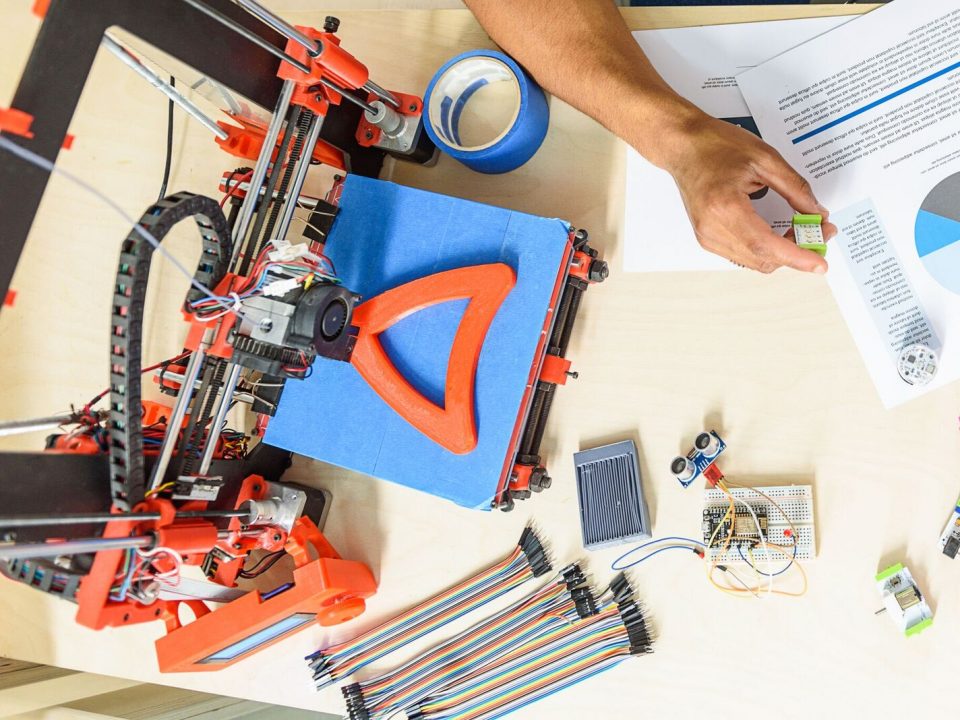13 Critical Traits of Successful Inventors

To master any profession, determination is needed. There are no shortcuts. No one can bestow upon you all of the knowledge you need. You have to do the work yourself — which is why achieving success is so gratifying. The best advice I can offer you is to learn how to enjoy the journey.
I’ve met many successful inventors throughout my career. I’ve also had the pleasure of watching aspiring inventors thrive and prosper. I’ve often wondered what sets those who succeed apart from those who don’t. Making it as a professional isn’t for the faint of heart!
This is what I have learned about successful inventors after years of observation.
1. They don’t fall in love with their ideas.
Your ideas are not your children. Successful inventors understand the importance of detaching themselves from their ideas. Inventing is a numbers game. Some of your ideas will be profitable, but others won’t. You need to be able to tell the difference between the two.
If you become too emotionally or financially involved, walking away will become more and more difficult. Don’t get me wrong: I love all of my ideas. I want them to succeed. But I’m also pragmatic. If you want to do this for a living, you have to be able to assess your ideas critically.
2. They test their ideas.
Will your idea make money? How can you be sure? Successful inventors seek out proof of demand early on.
3. They keep their ideas to themselves.
The only opinion that truly matters is that of the company you are showing your idea to, after all.
4. They understand how to use intellectual property to protect their ideas.
To become a successful inventor, you must teach yourself how copyrights, trademarks and patents work. It’s not enough to hire a lawyer and assume he or she will take care of your needs.
5. They don’t file patents right away.
To be clear, I am not an attorney and this is not legal advice. But in my experience, successful inventors file provisional patent applications first. They need time to determine whether the idea is going to be profitable, after all.
6. They stick to one industry.
The successful inventors I know don’t jump around much. Instead, they focus on becoming experts and forging mutually beneficial relationships within an industry. This strategy is incredibly effective. As trust deepens, companies begin to approach them with their creative needs. Familiarizing yourself an industry means your timing will never be off.
7. They attend the right trade shows and seminars.
See some tips on trade shows here.
8. They outsource.
To become a successful inventor, you will need to don many different hats. You can’t be great at everything. Assess your strengths and be smart about your time. Finding an affordable freelancer is painless. When it comes to graphic design work, for example — hiring a professional is so worth it.
9. They know it’s up to them.
Successful inventors understand that they are going to be the one who ultimately champions their idea across the finish line. They know that they are going to have to work harder than anyone else.
10. They have a sense of urgency.
Product development is a long process. You need to get started as soon as possible.
11. They are persistent.
Every successful inventor I know has been rejected countless times. Rather than getting discouraged and giving up, they ask questions to try to understand what went wrong and try again.
12. They don’t let their emotions betray them.
Chances are, you wouldn’t be interested in becoming an inventor if you weren’t passionate. That’s fantastic! But this is a business. It’s not personal. If you want to become a professional, you will need to act like one. That means holding your tongue and your tears.
13. They’re not afraid to fail.
As my friend Charles Lamprey, an inventor who has brought five of his ideas to market so far, said the other day, “Fail fast and fail often.” You won’t be able to move on until you do.
Becoming a successful inventor takes more than having an idea scrawled on a napkin.
https://www.entrepreneur.com/article/242356



